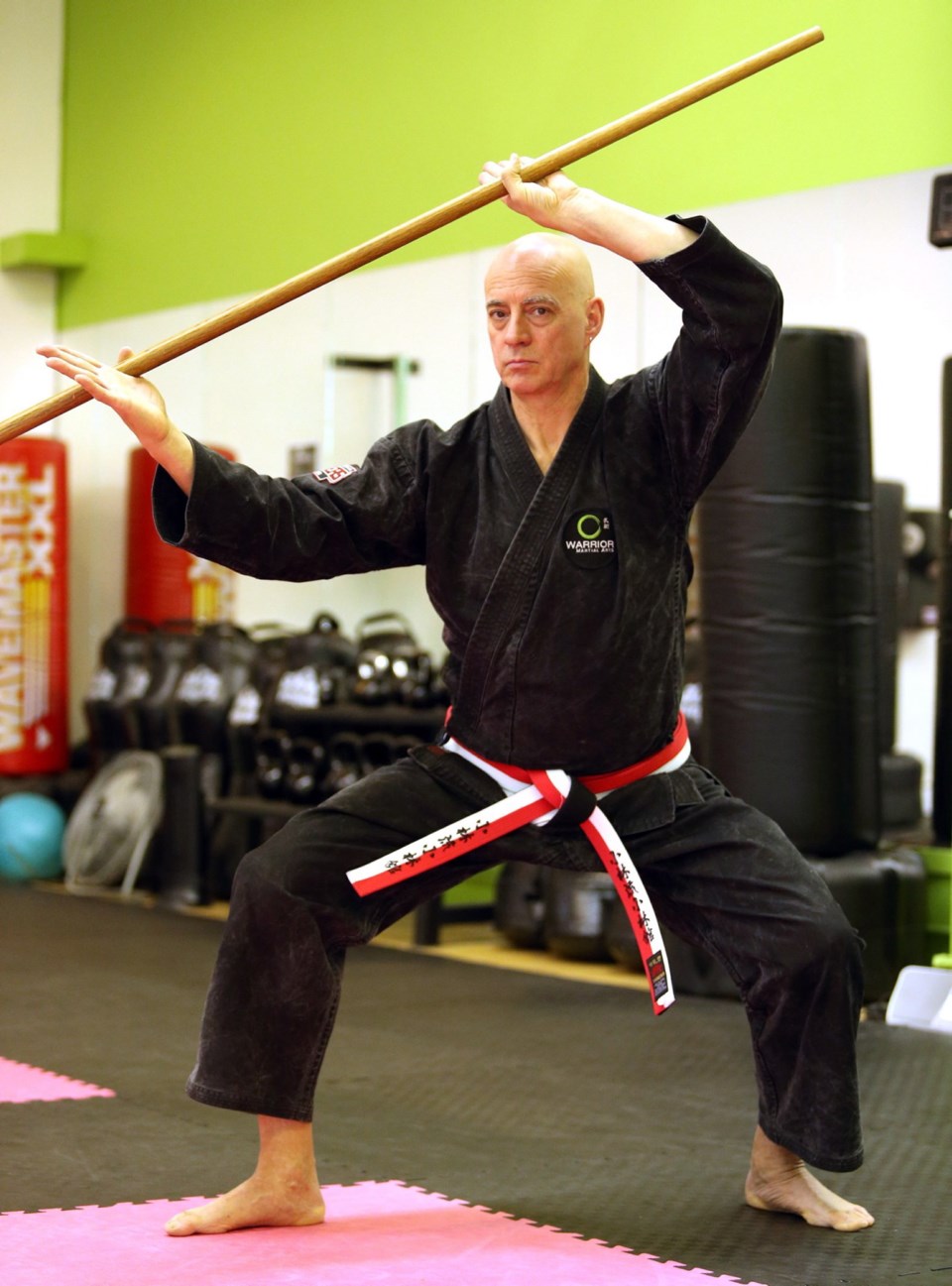Ken Marchtaler had his first taste of martial arts with kung fu as a teenager in 1973, but it took a while for the next experience to happen.
“I had a long hiatus,” the fit 57-year-old said with a smile.
He said he boxed a little when he was 19, but martial arts didn’t re-emerge in his life in a serious way until 1991, when he took up aikido and later Okinawa karate. Over the years, he has earned an array of awards, become accomplished in several martial-arts disciplines and won world-championship titles.
Marchtaler’s latest achievement — and one of his most significant — is earning the samurai title of renshi, which means “polished master.” He was given the designation in December after a gruelling evaluation in California.
“It was a four-and-a-half-hour testing of about 28 people.”
He earned his fifth-degree black belt at the same assessment, with black belts ranging up to 10 degrees in the Japanese system.
Reaching any of the three levels of samurai ranking is “really rare,” Marchtaler said.
“One in every 100 people that takes martial arts makes it to black belt. There’s no statistics, but there’s very few people that even make it to second degree.”
He likened his samurai ranking to earning a master’s degree.
“You’ve got your black belt, which would be like your bachelor of arts. A lot of people look at a black belt as an icon but, in fact, you’ve really just mastered the basics.
“To go beyond that really is taking things to a whole different level.”
Marchtaler said the samurai connection to martial-arts disciplines is steeped in history.
“In the 1860s, when they took the power away from the samurai, they were no longer a warrior class. They encouraged them to continue practising martial arts as a way of life.”
Judo was the first discipline to emerge from that, and karate was one that followed. The term “karate” came about in the 1930s — prior to that it was called tote.
Marchtaler has had his own karate studio in Victoria since 2001, and now operates the Warrior Martial Wellness Centre on Quadra Street. He has been involved in karate full time since 2004.
He has students of all ages, and for a time his mother was his oldest, earning her orange belt at the age of 75.
While martial arts have been a big part of his life, the Vancouver-born Marchtaler also had a 12-year banking career including senior-management positions. He has since been active on non-profit boards for such groups as the World Martial Arts Games Committee and founded the Canadian National Martial Arts Association in 2005.
Marchtaler has been front and centre in staging high-profile events such as the World Martial Arts Games, which he organized from 2006 through 2012.
Along with that, Marchtaler served as martial-arts commissioner on The Association For International Sport for All, or TAFISA, which works closely with the International Olympic Committee. He is also called upon frequently as a speaker, and enjoys using speaking events to bring a positive message to young people.
“I do a lot of volunteer speaking in the public schools and private schools,” Marchtaler said. A key topic at those sessions is assertive-behaviour development “which is saying the right thing at the right time the right way,” he said.
